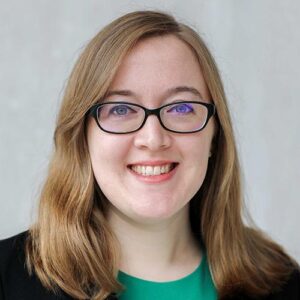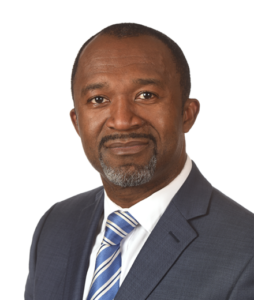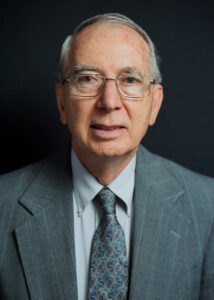Great Power Rivalry in Africa:
Who Is Winning?
Virtual Briefing Series
Tuesday, September 19 | 12:00 PM – 1:00 PM ET
Over the past two decades, major powers including Russia, China, and the U.S. have significantly increased their engagement with countries on the African continent. These activities—including trade, investment, infrastructure development, and military cooperation— can influence regional conflicts, resource allocation, and international alliances. With China’s growing global influence and Russia’s ongoing invasion of Ukraine, how do African countries perceive the influence of these powers? And how do governments and people across the continent perceive the United States’ more recent attention? What is the U.S. perspective on both China and Russia’s engagement in Africa, and what strategies does it aim to counterbalance initiatives in the region? Join us on Tuesday, September 19th from 12 PM to 1 PM ET for a virtual discussion with Catrina Doxsee, Associate Director of the Transnational Threats Project at the Center for Strategic and International Studies; Dr. Joseph Sany, the Vice President of the Africa Center at the United States Institute of Peace; and Ambassador David Shinn, Professorial Lecturer at the Elliott School of International Affairs at George Washington University and the co-author of China and Africa: A Century of Engagement
COULDN’T ATTEND OUR EVENT? Don’t worry. You can watch it below
SPEAKERS:
Catrina Doxsee
 Catrina Doxsee is an associate director and associate fellow with the Transnational Threats Project at the Center for Strategic and International Studies (CSIS), where she analyzes international and domestic terrorism and the irregular activities of countries such as Iran, Russia, and China.
Catrina Doxsee is an associate director and associate fellow with the Transnational Threats Project at the Center for Strategic and International Studies (CSIS), where she analyzes international and domestic terrorism and the irregular activities of countries such as Iran, Russia, and China.
Outside of CSIS, she is a member of the editorial board for the Irregular Warfare Initiative at the Modern War Institute at West Point and was the 2021 counterterrorism fellow at Young Professionals in Foreign Policy. Prior to joining CSIS, Ms. Doxsee worked as an associate policy analyst at the Migration Policy Institute. She has also conducted research at the Philip Merrill Center for Strategic Studies at Johns Hopkins and the U.S. Treasury Department’s Middle East and North Africa Office. She previously served for two years in AmeriCorps as a refugee resettlement caseworker in Pittsburgh. Ms. Doxsee holds a BA in history, with a concentration in military history, from the University of Chicago and an MA in strategic studies and international economics from the Johns Hopkins School of Advanced International Studies. She is currently a PhD student in the security studies program at Princeton University.
Dr. Joseph Sany
 Dr. Joseph Sany is the Vice President of the Africa Center at the United States Institute of Peace (USIP). Under Dr. Sany’s leadership, the Africa Center seeks to deepen, elevate, and expand USIP’s commitment to stem violent conflict in Africa by advancing dialogue and informing policy underpinned by evidence, experience, and learning. Dr. Sany has been working at the forefront of peacebuilding with civil society, governments, businesses, and international organizations in Africa for over 20 years.
Dr. Joseph Sany is the Vice President of the Africa Center at the United States Institute of Peace (USIP). Under Dr. Sany’s leadership, the Africa Center seeks to deepen, elevate, and expand USIP’s commitment to stem violent conflict in Africa by advancing dialogue and informing policy underpinned by evidence, experience, and learning. Dr. Sany has been working at the forefront of peacebuilding with civil society, governments, businesses, and international organizations in Africa for over 20 years.
In his previous role at FHI 360, Dr. Sany provided technical leadership in the design and implementation of peacebuilding and civil society development programs in several countries in Africa and Asia. He led the organizational and institutional capacity development strategy of many civil society organizations in Africa and advised the design, implementation, and dissemination of the annual USAID Civil Society Sustainability Index. Prior to his work at FHI 360, Dr. Sany advised international organizations and development agencies including MINUSTAH and the ECCAS on peacebuilding and development strategies.
Dr. Sany has researched, taught peacebuilding courses, and published scholarly articles on peacekeeping, peacebuilding, and civil society, including the book, “Reintegration of Ex-Combatants: A Balancing Act.” He currently writes about African development and politics in the blog African Praxis. He holds a doctorate in public policy and a master’s in conflict analysis and resolution from George Mason University.
Ambassador David Shinn
 David Shinn has been teaching African affairs in the Elliott School of International Affairs at George Washington University since 2001. He previously served for thirty-seven years in the U.S. Foreign Service. His first overseas assignment was at the embassy in Beirut, Lebanon, followed by a tour as political officer in Nairobi, Kenya. He then served as the State Department desk officer for Somalia, Djibouti and assistant desk officer for Ethiopia before moving to the desk for Uganda and Tanzania. He was the political officer in Dar es Salaam, Tanzania, followed by deputy chief of mission in Nouakchott, Mauritania. The State Department then detailed Shinn to the mayor’s office in Seattle; he returned to Washington to serve as deputy and then acting director of the State Department’s Office for Liaison with State and Local Governments. Returning to Africa, he was the deputy chief of mission in Yaoundé, Cameroon before moving to Khartoum, Sudan, as deputy chief of mission.
David Shinn has been teaching African affairs in the Elliott School of International Affairs at George Washington University since 2001. He previously served for thirty-seven years in the U.S. Foreign Service. His first overseas assignment was at the embassy in Beirut, Lebanon, followed by a tour as political officer in Nairobi, Kenya. He then served as the State Department desk officer for Somalia, Djibouti and assistant desk officer for Ethiopia before moving to the desk for Uganda and Tanzania. He was the political officer in Dar es Salaam, Tanzania, followed by deputy chief of mission in Nouakchott, Mauritania. The State Department then detailed Shinn to the mayor’s office in Seattle; he returned to Washington to serve as deputy and then acting director of the State Department’s Office for Liaison with State and Local Governments. Returning to Africa, he was the deputy chief of mission in Yaoundé, Cameroon before moving to Khartoum, Sudan, as deputy chief of mission.
Shinn returned to Washington to attend the State Department’s Senior Seminar after which President Reagan appointed him ambassador to Burkina Faso. He was assigned as a diplomat-in-residence at Southern University in Baton Rouge, followed by service in Washington on the Management Task Force. He became the State Department’s deputy task force director and then coordinator for Somalia during the U.S. intervention from 1992-1993. He served as director of the Office of East and Horn of Africa Affairs before being appointed by President Clinton as ambassador to Ethiopia. He finished his State Department career in 2000 as diplomat-in-residence at UCLA.
Shinn has a BA, MA and PhD from George Washington University and a certificate in African studies from Northwestern University. He is the co-author of China and Africa: A Century of Engagement (2012) and Historical Dictionary of Ethiopia, 2nd ed. (2013) and author of Hizmet in Africa: The Activities and Significance of the Gülen Movement (2015). He has authored numerous book chapters and articles in academic and policy journals. He speaks on China-Africa and African issues around the world and serves as an adviser or on the board of several non-governmental organizations. He maintains a blog with a focus on the Horn of Africa and China-Africa at http://davidshinn.blogspot.com. He is married to Judy Shinn; they have two adult children.
OUR VIRTUAL BRIEFINGS ARE FREE AND OPEN TO EVERYONE
We are trying our best to keep our community informed about foreign affairs, and we would appreciate if you can support us to keep this virtual briefing series going. No amount is too small.

